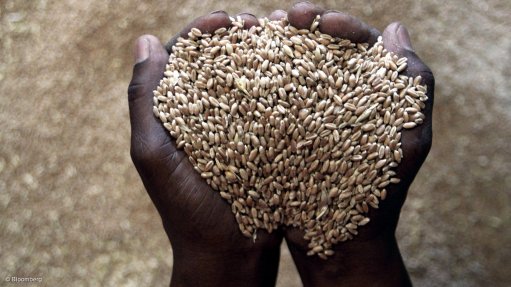PwC unpacks the extent to which coronavirus may dampen the local economy
In light of the coronavirus impacting downstream on South Africa’s trade with China and causing business disruptions, professional services firm PwC has published a report on the potential impact of trade disruptions on South Africa’s economic sectors.
The interconnectedness and complexity of global supply chains means that when disruption happens owing to a breakdown in logistics networks, natural disasters or disease outbreaks, impacts will be felt on a human, social and economic level, it says.
Prior to the outbreak of the coronavirus, which started late last year and escalated seriously by mid-January, Fitch Solutions expects the Chinese economy to grow by 5.9% this year.
Under a rapid containment scenario, with panic fading rapidly and restrictions on movement dismantled swiftly, growth would decline to 5.7%.
Alternatively, the epidemic might not be contained until mid-2020, reducing China’s economic growth closer to 5%. Effectively, the coronavius, now called Covid-19, could cut Chinese growth by up to one percentage point.
According to research by the International Monetary Fund, a one percentage point drop in Chinese growth can reduce South African growth by 0.2 percentage points – meaning it can reduce South Africa’s gross domestic product growth to 1% this year, compared with a South African Reserve Bank estimate of 1.2% for 2020.
From an export perspective, for example, under-pressure Chinese steel and copper manufacturing industries will weaken demand for South Africa’s largest exports – mineral ores.
“Slower growth in China will hit the South African economy through several transmission mechanisms: firstly, there is the demand for our minerals and mining products; secondly, there is the impact on the balance of trade; and thirdly, there is the potential exchange rate impacts.
“We were expecting slower Chinese growth to hit South Africa at some point towards the end of 2020, but recent developments have accelerated this slowdown and now we are dealing with suppressed demand a year earlier than we initially thought it would happen,” notes PwC chief economist Lullu Krugel.
PwC further avers that many of South Africa’s industries will see an adverse impact from the virus, including mobile operators, automotive manufacturers, as well as hospitality and retail establishments.
The firm adds that three out of four Chinese tourists to South Africa undertake personal shopping activities – China has a burgeoning middle class opting to spend money internationally.
The size of the potential decline in Chinese arrivals in South Africa is hard for PwC to gauge at present. Using some simplifying assumptions, the firm estimates a potential loss of at least R200-million in Chinese tourist spending.
The scope for Covid-19-induced business disruption in South Africa is vast, says PwC.
China is South Africa’s largest supplier of imports and biggest buyer of exports.
Mobile phones, for example, are South Africa’s largest import category by value from China, with the latter supplying 85% of South Africa’s mobile phone imports.
A disruption in this context would have knock-on effects on the wider telecommunications sector.
PREPARING FOR THE WORST
PwC’s Global Crisis Centre has cautioned that many businesses have only a small window of opportunity to plan for what is ahead.
“Many globally integrated companies with just-in-time operations had only a few weeks supply of goods already in transit when the epidemic hit, enough to provide just a short-term buffer.
“From a business resilience perspective, having a clearly defined plan in place to deal with such an unforeseen crisis is a critical component to protecting the ongoing success and viability of a business. When a crisis hits, business as usual ceases,” the firm states.
PwC adds that companies that have built markets on the back of an integrated global trade network need to be aware of, and ready to act on, the vulnerabilities that their trade dependence creates.
According to the firm, an effective approach to protecting businesses against the disruption in trade is built on five pillars: creating a view of critical products and suppliers, having contingency plans in place, considering the financial and legal implications, communicating transparently with customers and conducting scenario analysis.
PwC governance, risk and internal audit leader Werner de Bruin highlights that a company’s leadership often has mixed levels of confidence about their organisation’s business interruption and continuity management capabilities.
He points out that this lack of clarity amplifies when you move beyond company walls and examine interruption risk among the vendors who provide goods and services for the organisation’s critical functions.
“Even when a vendor (in China, for example) provides information on their business continuity programme and how it will sustain operations during a trade dispute or humanitarian crisis, South African companies are rarely able to understand how the vendor’s continuity programme aligns with their own resilience,” De Bruin says.
PwC explains that the complexity of global supply chains means that businesses may be reliant on Chinese products without being aware of it.
China is a significant exporter of intermediate manufacturing – manufactured goods used as inputs elsewhere. According to the Organisation for Economic Cooperation and Development, more than 52% of the country’s exports are of this nature.
PwC operations consulting leader Keshava Naidu recommends that organisations adopt an agile approach to rapidly assessing any vulnerabilities in their supply chains.
He adds that it is imperative that companies clearly understand the impact of upstream disruptions on the end customer, especially from a health and safety standpoint.
This can be done by collaborating with key customers, suppliers and other partners supporting the core value chain of an organisation.
Comments
Press Office
Announcements
What's On
Subscribe to improve your user experience...
Option 1 (equivalent of R125 a month):
Receive a weekly copy of Creamer Media's Engineering News & Mining Weekly magazine
(print copy for those in South Africa and e-magazine for those outside of South Africa)
Receive daily email newsletters
Access to full search results
Access archive of magazine back copies
Access to Projects in Progress
Access to ONE Research Report of your choice in PDF format
Option 2 (equivalent of R375 a month):
All benefits from Option 1
PLUS
Access to Creamer Media's Research Channel Africa for ALL Research Reports, in PDF format, on various industrial and mining sectors
including Electricity; Water; Energy Transition; Hydrogen; Roads, Rail and Ports; Coal; Gold; Platinum; Battery Metals; etc.
Already a subscriber?
Forgotten your password?
Receive weekly copy of Creamer Media's Engineering News & Mining Weekly magazine (print copy for those in South Africa and e-magazine for those outside of South Africa)
➕
Recieve daily email newsletters
➕
Access to full search results
➕
Access archive of magazine back copies
➕
Access to Projects in Progress
➕
Access to ONE Research Report of your choice in PDF format
RESEARCH CHANNEL AFRICA
R4500 (equivalent of R375 a month)
SUBSCRIBEAll benefits from Option 1
➕
Access to Creamer Media's Research Channel Africa for ALL Research Reports on various industrial and mining sectors, in PDF format, including on:
Electricity
➕
Water
➕
Energy Transition
➕
Hydrogen
➕
Roads, Rail and Ports
➕
Coal
➕
Gold
➕
Platinum
➕
Battery Metals
➕
etc.
Receive all benefits from Option 1 or Option 2 delivered to numerous people at your company
➕
Multiple User names and Passwords for simultaneous log-ins
➕
Intranet integration access to all in your organisation


















